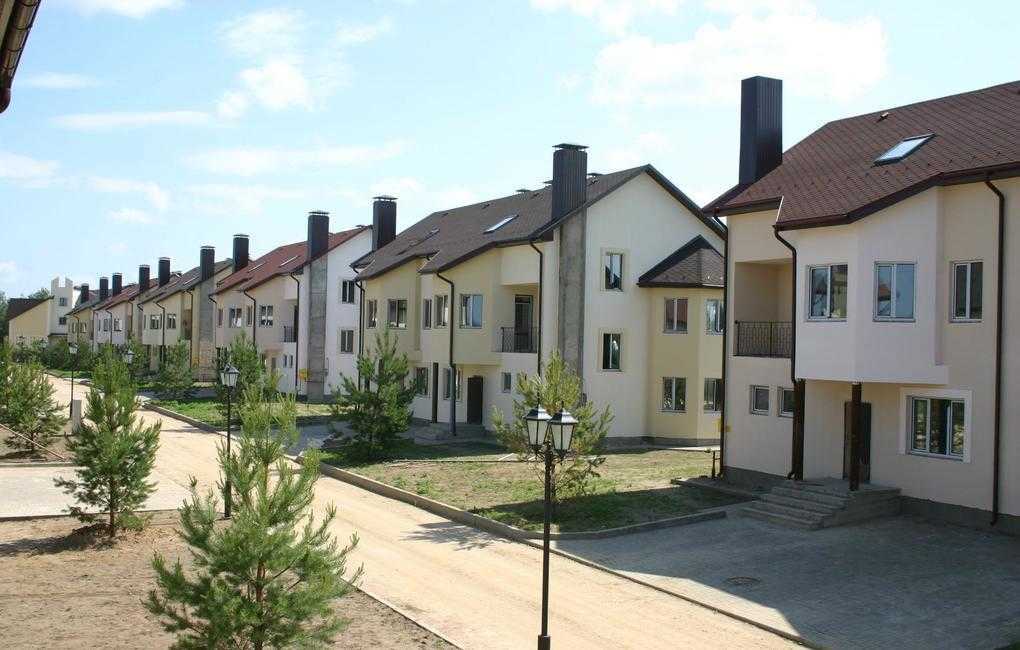If you start the installation Communications inside the house, Purchase suitable fittings for polypropylene tubes. They may have a different configuration and size that allows to form a joint with the necessary parameters. We offer to meet with the existing species and their distinctive features.

Read article
-
1 Types of fittings for polypropylene pipes
- 1.1 Coupling and Adapter
- 1.2 Area, tees and crosses
- 1.3 Perimeter and expansion joints
- 1.4 American
- 1.5 Taps, valves and plugs
- 1.6 Clamps and fasteners
- 2 The range of diameters
- 3 Leading manufacturers whose fittings are worth buying in the first place
- 4 Choosing fittings polypropylene pipes: it should always be taken into account
-
5 Features of pipe joints
- 5.1 Polypropylene polypropylene
- 5.2 Polypropylene metal
-
6 Compound polypropylene pipes with fittings with their hands
- 6.1 compression
- 6.2 pressing
- 6.3 For drip irrigation
Types of fittings for polypropylene pipes
The configuration and dimensions of fittings may differ materially. Manufacturers offer a wide range of products, which is easy to get confused. We offer to meet with the main varieties, to make it easier to make a choice.

Coupling and Adapter
The couplings are used to connect two equivalent diameter pipe sections. Outwardly, they look like a bush. The dimensions of the fitting are selected taking into account the transverse sizes of elements to be connected.

The adapter performs the same function as the clutch. However, it is used to join the elements with different lateral dimensions. On the one hand in the fitting inserted polypropylene Pipes smaller diameter, on the other - greater. It allows connecting pipeline, made from different materials. thread provided for the metal.

Area, tees and crosses
Despite the ductility of polypropylene, it is undesirable bending. In these locations the material becomes thinner, which may lead to breakthrough pipes transported when applying the pressurized medium. Also, in place of the bending decreased throughput.

Using squares, can be formed in desired places pipe bend rotation. Formed angle may have different values: either 45º, or 90º. Depending on the version, the fitting can be used for connecting pipes of different diameters and one. Some products require you to simultaneously adapter function. They can be used for docking metal and polypropylene tubes.

Tees and crosses installed in the branching points of the pipeline. Can be joined at various angles. May have a different configuration. for devices heating systems Welded fittings are used without a thread. They performed a smooth inner surface. If necessary piping connection elements of different materials, or the cross tees are used, in which the thread is provided in one or more taps.

Perimeter and expansion joints
If you want to put the transported medium to bypass certain pipe length, use the bypass. This fitting has a characteristic curved shape. It is welded to the pipeline system in the right place. The length and height of the bend is chosen individually, taking into account the configuration of the polypropylene portion of the tube.

To mitigate the effects of thermal expansion compensators are used. They have a loop shape.

American
The structure of such gasketed fittings include the coupling and coupling nut. They used advantageously in systems requiring periodic cleaning and removal elements. Often mounted in front counters.

Taps, valves and plugs
To a mixture of movement cutoff certain branch pipe used cranes or valves. By using valves to regulate the flow rate can either completely cover it. Polypropylene fittings are welded in the system. It does not exclude the use of taps and valves made of brass. For their connecting adapter used for connecting elements of different materials.

Where polypropylene pipe ends mounted stub. They may have a different configuration and size. The choice is made taking into account the specific features of the pipeline system. May be established by soldering or threaded connection. The first option can be temporary or permanent. A threaded joint is used mainly for removing temporal overlap. The required level of sealing is achieved at the expense of a special sealing ring, the supplied.

Clamps and fasteners
To install and provide the desired spatial position of all elements of the system are used and fastener clips. He may have the most diverse configurations.

The range of diameters
Selection fittings for polypropylene pipes is carried out taking into account the outer diameter of the connected parts. The indicator is present in the marking polypropylene tubes. However, the thickness of the conduit elements may be different, that should also be considered when choosing a suitable coupling member.
Among the most popular is attributed diameters 20, 25, 32 and 40 mm. For internal communication mounting fittings are often used 16 mm. In everyday life the maximum diameter of the pipeline is usually 50 mm. At industrial facilities - up to 110 mm. Connection of elements with larger transverse dimensions is carried out in other ways.

Leading manufacturers whose fittings are worth buying in the first place
When selecting the fittings necessary to pay attention to the manufacturer. Necessary accessories offered by the companies engaged in production of polypropylene pipes. We advise you to pay attention to the production:
- Valtec. Russian-Italian manufacturer uses conical funnels. This arrangement greatly simplifies the process of connecting polypropylene tubes. In its catalog are mixed product, allowing the connecting member by welding or threaded connection. The octagonal shape of the threaded part allows the use of standard keys. The maximum diameter of 50 mm connected elements;
- Banninger Kunststoff-Produkte, GmbH. The German company uses for the production of high-quality plastic fittings, which has high strength and chemical inertness. Products are suitable for water supply system installation. Have a higher value in comparison with analogues;
- Wavin Ecoplastic. In Czech manufacturer feedstock acts chemically neutral polymer. Optimal variant for potable water devices;
- Kalde. Turkish producer Products are of high quality. Fittings can be found for polypropylene pipes with different diameters;
- Tebo. Turkish company offers fittings that allow to connect plastic pipes with diameter 20-160 mm. They are able to withstand the operating pressure of 10-25 bar;
- SPK. Another Turkish company produces fittings on the German equipment, using raw material from the Netherlands. They have high permeability with a small wall thickness.

Choosing fittings polypropylene pipes: it should always be taken into account
To purchase the appropriate fitting, we advise you to pay attention to:
- operational features pipeline system. Attention should be paid not only to the maximum pressure, the temperature inside the system but also the environment;
- appointment. Ensure that the selected fitting for polypropylene pipes, not PVC;
- joining method. When selecting welding make sure you have the necessary equipment;
- structural features and geometric parameters;
- warranty period. In the known producers it is usually 7 or more years.

Features of pipe joints
Installation work can be carried out in different ways. It depends on the selected method. We offer to get acquainted with the peculiarities of each available option.

Polypropylene polypropylene
Compound polypropylene elements is performed by welding. For this purpose a special tool - soldering Iron. Given the choice should give preference to the equipment well-known manufacturer, equipped with a high quality heating element and timer. Although some craftsmen gather soldering yourself.
Attention! Suitable for domestic use standard equipment to connect the tube with the maximum transverse dimensions of 50 mm and having 2 - 3 nozzles.

Compound polypropylene products is performed in the following sequence:
- The fitting is installed on the heating element of the soldering iron. Heating of the inner surface by means of a mandrel, the outer - the sleeve.
- Exhibited the desired heating temperature.
- The device connects to the network. On heating to a desired temperature in the majority of models of LED signals. This usually takes about 15 minutes.
- Start welding. Cleaned mating pipe. A pipe inserted into the sleeve, and the fitting is put on the mandrel. Manipulations are performed simultaneously. If this is not possible, it is first heated fitting having thicker walls, then pipe. The heated elements are interconnected to provide the correct spatial position. Insert the tube into the fitting should until it stops. Generally, a depth of about 2 mm. The junction is not touched until the material has cooled down completely.

More detailed information on the welding process can be found in the following video:
Polypropylene metal
For the connection of polypropylene with metal elements used special fittings with thread. In this case, the metal tube is connected by a threaded connection, and propylene - by welding. Considering that the slipping elements polypropylene after the compound can not be first twisted thread, produced and then assembling the welded portion.
We offer watch a video, which gives details on the connections of polypropylene and metal elements of the pipeline:
Compound polypropylene pipes with fittings with their hands
When compression forging and connecting individual elements of reinforced pipes is required to consider their features. In this case, no nodules within the system that may have an adverse effect on their capacity. We offer to meet with the distinctive features of each type.

compression
The composition includes a compression brass body, O-rings, fitting, clamp nut. Compression of the seal during crimping tube allows the joint tightness. Works are carried out by means of an adjustable or open-end wrench.
Attention! Compression compound is able to serve 30 years, withstanding pressures up to 35 bar, but the timely tightening nuts.

pressing
The structure includes a pressing body and a socket with crimp sleeve. The compound obtained airtight. To work requires special pliers. Formed joint able to last half a century, withstanding pressures up to 75 bar. Allow laying of the pipeline within a monolithic structure.

For drip irrigation
A compound of the Elements drip irrigation by using special start-connectors. The supply pipe of the fitting has a diameter of 16 mm. Connection is performed in the following sequence:
- a hole is drilled in the pipe diameter 17 mm;
- is inserted into a prepared hole first seal, then fitting;
- dropping fastening tape is carried on the fitting and then fixing the crimp nut.

Share in the comments, how fitting for polypropylene pipes you use, the product of the manufacturer and the preferred order in which the installation was performed.



